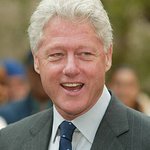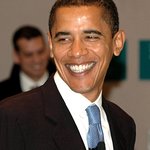Bill Clinton recently wrote an op-ed for South African outlet News24 in commemoration of the centennial of Nelson Mandela's 100th birthday.
“I first met Nelson Mandela in 1992 when he visited the Democratic National Convention in New York while I was running for President. That meeting marked the beginning of a wonderful 21-year friendship that I will treasure for the rest of my life.
“Whether we were working together while we were both in office, raising money to fight the HIV/AIDS epidemic after our terms were over, or just spending time together as friends — I traveled to South Africa almost every year to see him on his birthday after I left the White House — I saw up close the gifts that made him one of the greatest leaders and finest human beings of our time.
“He was a fearless fighter for equality and justice who was prepared to sacrifice everything — and nearly did — to secure the rights, opportunities, and responsibilities of citizenship that his people had long been denied. The depth of his courage and convictions, and the price he paid for them, inspired and challenged countless others to be better and to work for something bigger than themselves.
“He was also a shrewd, tough politician who believed political power should be exercised for noble causes that make a meaningful difference in peoples’ lives. He was genuinely interested in every person he met and devoted his life to building a better future than the cruel past he had endured. Even when his body grew old, his spirit remained young because of his curious, open mind, his love of children, and his commitment to their future. I’ll never forget the way his face would light up when he met a child, or how on his phone calls to the White House, before we could begin our official business, he would first insist on talking to Chelsea to make sure she was doing her homework.
“Of all his many gifts, the most remarkable was his ability to put resentment aside in favor of reconciliation. We so often think of Mandela as saintly, but he was a real flesh and blood person who had to fight the allure of anger long after he was freed. Every now and then, when someone tried to derail his efforts to build a shared future for South Africa, I would see that anger flare in his eyes, as if all the insults and injuries of those 27 years were playing back to him. But he would snuff it out in an instant before most people saw it. He knew that keeping his spirit free required forgiving, again and again. And he developed the discipline, will, and wisdom to do it.
“In 1998, when I made the first visit by an American President to South Africa, we toured Robben Island together. After seeing his cramped cell and the rock quarry where he labored every day, I was even more amazed by the man he was and the man he became.
“I said, “Madiba, I know you did a great thing by inviting your jailers to your inauguration and putting the leaders of the parties who had imprisoned you in your cabinet — but didn’t you hate them for what they had done”
“He said, “I did hate them for many years. They had taken so much from me. They abused me physically and mentally. I didn’t get to see my children grow up. They jailed and killed my friends and allies. But one day when I was breaking rocks I realized they could take everything away from me — except my mind and my heart. Those things I would have to give them. I decided not to give them away.” And then with that unbelievable twinkle in his eye, he said, “And neither should you.”
“Later I asked him if, when he was walking away from confinement for the last time, he felt the hatred rise up again. He said, “I did, but I knew that if I continued to hate them as I drove away from the gate, they would still have me. I wanted to be free, and so I let it go.” I think of this lesson often.
“It is a lesson that people across the globe today need to hear again. Our world is increasingly awash in “us” versus “them” thinking, where people view economic, political, and social progress as a zero-sum game in which in order for them to win, someone else has to lose.
“Nelson Mandela’s life remains a rebuke to that kind of thinking. He showed that you can embrace and be proud of your identity but still be part of a larger community where what we have in common matters most; that diverse, inclusive groups make better decisions than lone autocrats; and that achieving shared prosperity and social equality require a commitment to expanding the definition of “us” and shrinking the definition of “them.”
“On what would have been his 100th birthday, when his vision for an inclusive community is once again under attack in the U.S. and across the world, we should remember Mandela not just for who he was, but also for his conviction about who we can still become. As he said, it all depends on what we do with our minds and our hearts.”






